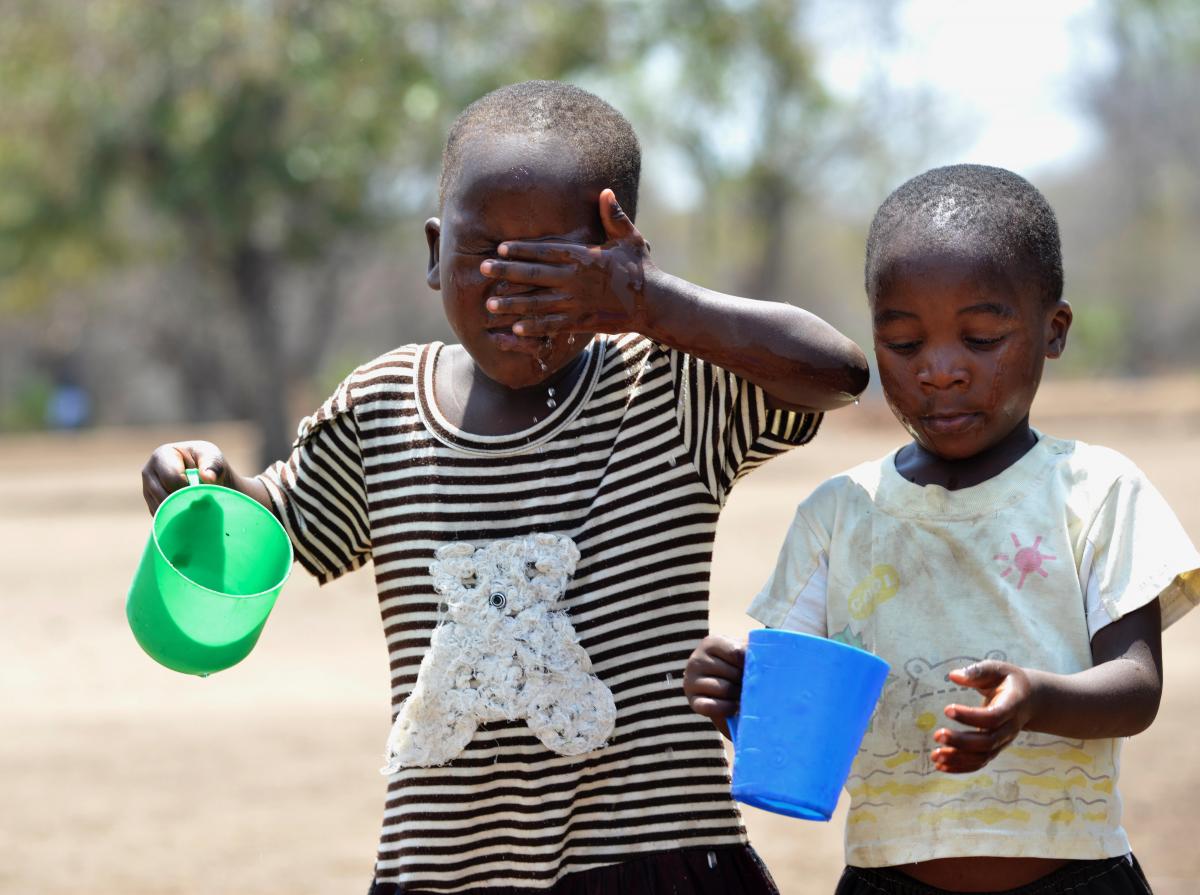Join a powerful, unprecedented alliance for better eye health for all.
Join IAPB-
Choose an alternate language here

Trachoma is caused by the chlamydia trachomatis bacterium. Like a number of other neglected tropical diseases (NTDs), transmission is closely linked to poor water, sanitation and hygiene (WASH). The bacteria spread through contact with eye discharge from an infected person, via hands, towels, sheets and, in some cases, eye-seeking flies, and thrive where there is poor sanitation and limited access to water for personal hygiene.
While efforts have been made over the years by those working on trachoma and other neglected tropical diseases (NTDs) to engage with agencies that deliver WASH services, NTD and WASH programmes have tended to plan, implement and monitor their work separately. This has led to concerns over both the sustainability of achievements made through medical treatments as well as the lack of targeting of WASH services to endemic communities.
However, changes are afoot and there are a number of reasons to be optimistic. Recent years have seen a number of positive developments around the issue. Encouragingly, the importance of WASH services is being championed at the highest level. In August 2015, WHO unveiled a global strategy and action plan to better integrate WASH services with public health interventions to accelerate progress in eliminating and eradicating NTDs by 2020. The emphasis is further reflected in WHO’s new procedures to validate that trachoma has been eliminated as a public health problem. These procedures look beyond disease data to require evidence that environmental and behavioural conditions for transmission are also being addressed. This provides added incentive for trachoma partners to work with WASH, education and other stakeholders.
At the programme level, closer integration is becoming more common, particularly within the two large-scale programmes funded by the UK Department for International Development (DFID) and The Queen Elizabeth Diamond Jubilee Trust (The Trust) that ICTC members are working on. Planning workshops held in seven countries aimed specifically at trachoma brought entirely new groups together, including different sectors of government (WASH, Education, Health) as well as non-governmental organizations and academics across these same sectors. To enhance this collaboration and ensure lessons from this success were captured and shared, in 2015 ICTC developed “All you need for F&E” – a toolkit for planning and partnering, a resource which aims to strengthen coordination and maximize impacts in the field by supporting programme managers working on trachoma to engage stakeholders from other/dependent sectors.
An initiative to enhance joint WASH and NTD monitoring processes is also underway. An extensive consultation with NTD and WASH experts has resulted in an agreed set of core indicators to be applied at programme level. By sharing goals and indicators, the common ground between partners is made explicit, making collaboration easier. At the country level, concrete examples are emerging of how data sharing can support joined up working.
Ensuring the sustainability of elimination efforts is possible. We celebrate the practical examples that exist to support the sustainable elimination of some of the world’s most disabling and neglected diseases. We look forward to seeing these efforts scaled up and adopted by more partners working on trachoma and other NTDs.
Co-authored by: Geordie Woods, Technical Adviser Neglected Tropical Diseases, Sightsavers; Yael Velleman, Senior Policy Analyst on Health, WaterAid; Virginia Sarah, Chair, International Coalition for Trachoma Control (ICTC).
We have more posts to mark World Water Day!